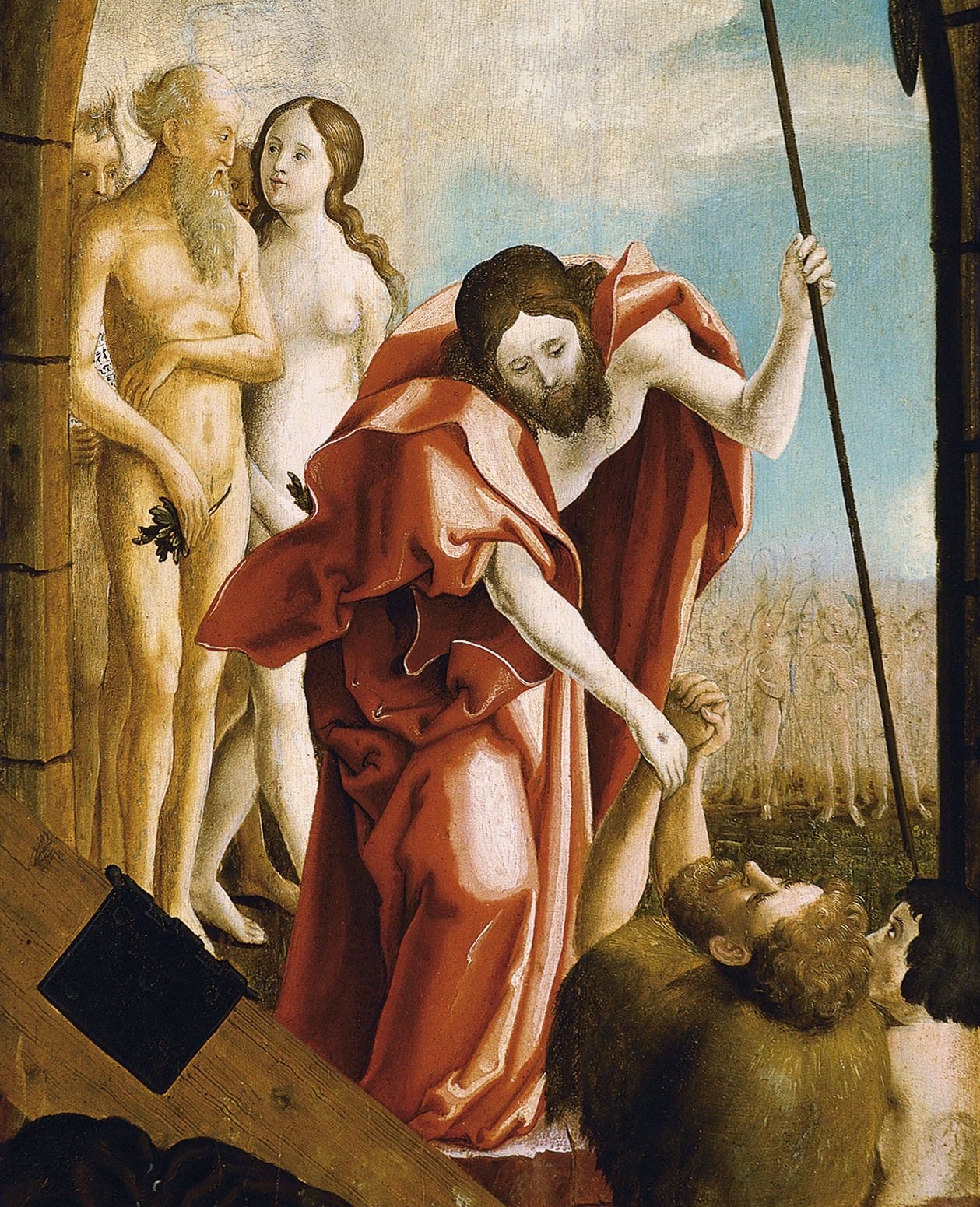Misery, Poverty, and Our Nothingness
“Let us be convinced of the truth of our nothingness, and of the constant and essential need we have of help from above.” -Bl. Columba Marmion
While this might seem to be a rudimentary principle of the spiritual life, it is one so foundational that I don’t think it is ever a waste of time to visit (or revisit) it.
Poverty
For decades probably, I had been reading the word ‘poor’ in Scripture as “lacking in material possessions.” I thought the Bible was speaking of someone who has no money, someone who is financially destitute and in need of monetary help. It wasn’t until many years later that I learned of the deeply important spiritual meaning of the words ‘poor’ and ‘poverty.’
For example, let’s look at this verse from Psalm 109:
“For I am poor and needy, and my heart is troubled within me.”
And another from Psalm 69:
“But I am poor and sorrowful: thy salvation, O God, hath set me up.”
And one more from Psalm 25:
“Look thou upon me, and have mercy on me; for I am alone and poor.”
With the Fall of Adam, all of mankind was plunged into poverty. Not material poverty in which a man cannot sufficiently provide material goods for his physical body, but a spiritual poverty in which he cannot provide the spiritual goods that his soul requires. To put it quite simply, human beings lack the supernatural ability to provide themselves with grace. We are entirely dependent upon God, because we are not capable of providing supernatural grace for ourselves.
This is why the Lord is a “refuge for the poor”; this is what it means that he will “lift up the poor.” He is the source of grace for mankind who has lost grace; only He can restore us to the original life of grace that we were created for, but lost.
Misery
Now, let’s look at the word misery.
Here’s is a line from Psalm 12:
“By reason of the misery of the needy, and the groans of the poor, now will I arise, saith the Lord. I will set him in safety: I will deal confidently in his regard.”
And another from Psalm 40:
“And He heard my prayers, and brought me out of the pit of misery and the mire of dregs. And He set my feet upon a rock, and directed my steps.”
I had been thinking of misery merely as a feeling of profound sadness. You know, when you’re having a bad day and you think, “I feel miserable!” That was pretty much the sum total of my understanding of misery.
But my idea of “poor” (having no money) and “misery” (feeling very sad) didn’t quite fit the context of these verses. What does God mean that he will “lift up the poor” and “set the miserable in safety”? What does it mean to be “brought out of the pit of misery”?
If we look at the origin and history of the word misery, we find the Latin miseria, which means "misfortune." When I looked up English words derived from the Latin miseria, the first one that came up was poverty. These two words, misery and poverty, are, in fact, pointing to the same thing.
Misery is the human condition of weakness, suffering, and wretchedness, which ultimately stems from humanity's fallen nature due to original sin.
Our human misery is a result of the poverty and destitution we experience from the Fall, the original sin of Adam.
With this in mind: what is the misery of the needy? What is the pit of misery that we need to be brought out of? It is the poverty and destitution we inherit from the original sin of Adam. Our misery is a reflection of the struggles, temptations, and imperfections that are part of our humanity, which are result of our separation from God.
Misery and Mercy
This extends further when we look at the word misericordia. Misericordia is a combination of two Latin words: miseriae (misery) and cor (heart). This is, in fact, the origin of the word mercy. Misericordia means compassion, mercy, and a readiness to forgive. This summarizes God’s disposition toward us.
Misery and mercy are related.
God’s mercy toward humanity is a result of his compassion for our misery.
God has compassion for our human misery (our fall into original sin), and is willing to redeem us by sending His Son, Jesus Christ, to do something for us that we cannot do for ourselves.
Look again at this line from Psalm 25:
“Look thou upon me, and have mercy on me; for I am alone and poor.”
‘I am alone and poor;’ that is, of myself and by myself I am entirely incapable of supplying my greatest need for myself: my salvation. Therefore, I am in need of God’s mercy and help.
This is human misery: our fall into original sin.
This is human poverty: our inability to save ourselves.
This is the truth of our human condition.
And this is what we call our “nothingness.”
Being Nothing
We are ‘nothing’ because we cannot merit eternal life from our natural actions, unaided by God’s grace. Without this grace, which comes from God alone, we are simply incapable of doing anything whatsoever in order to reach our supernatural end.
If we desire to make progress in the spiritual life, it is going to be necessary for us to surrender entirely to the Lord, and the most efficient way to do that is to accept our own inability to make progress without God’s help.
“All that is good in us, all that is meritorious for eternal life, comes from God through Christ.”
- Bl. Columba Marmion, Christ the Life of the Soul.
At Baptism, we receive sanctifying grace and the Trinity comes to dwell within us.
Through-out our lives, we allow the Holy Spirit to act in us, remaining docile to His inspiration and direction.
We acquire the supernatural theological virtues of faith, hope, and love from God, and even our natural virtues are infused with supernatural help, aimed at supernatural ends.
All of this we attribute to God; we have nothing to boast of on our own. Everything is referred to Divine Grace.
Yes, we cooperate in receiving the grace. and we freely use our will to act on the graces received, but the graces themselves are not our own and we cannot attribute them to ourselves.
“Always attribute any good one sees in oneself to God and not to oneself.”
-St. Benedict, Rule, Ch. 4, no. 42-43
It is only when we accept our nothingness that we can even begin to be grateful for the compensation that Jesus Christ made on our behalf.
He does something for us that we cannot possibly ever do for ourselves, but we won’t appreciate the depths of this truth until we acknowledge our own inability: our weakness, our imperfection. We simply won’t understand or appreciate the merciful love of Jesus until we admit our utter nothingness.
This is the entire basis of the virtue of humility: the knowledge of the sovereignty of God on one hand, and of the nothingness of ourselves on the other.
St. Thérèse took this dense and complicated theological term ‘nothingness’ and put it into very simple, common language:
“Perfection seems simple to me. I see it is sufficient to recognize one’s nothingness and to abandon oneself as a child to God’s arms.” (Letter 226)
She also wrote to her sister Marie: “If you are nothing, you must not forget that Jesus is All, so you must lose your little nothingness in His infinite All.” (Letter 109)
Holiness is supernatural, and it has Jesus Christ as its only source. Of ourselves, we can do nothing in the way of grace, perfection, or sanctification. Our Lord expressly tells us so when he says, “without Me, you can do nothing.” St. Augustine emphasizes: ‘Whether little or much, without Him you cannot do it; without him, nothing are you able to do.’
This is truly the only healthy way to embrace our nothingness: in order to acknowledge the supreme Everything of Christ.
Be Not Discouraged
This inner conviction of our own nothingness should not drive us to discouragement nor serve as an excuse for not making an effort.
Discouragement only invades a soul when astonishment has entered it. We won’t fall victim to discouragement if we cease to be surprised by our defects! We should not be astonished, troubled, or discouraged by our faults or by the fact that we are imperfect.
If we are surprised at our faults, then we clearly had an inordinate (i.e., unrealistic and untrue) esteem of ourselves. We were prideful enough to think we wouldn’t fall, instead of humble enough to admit the truth that we are capable of nothing good without Christ.
Discouragement is a secret and hidden source of pride, because what it really is, is us feeling frustrated at ourselves for not being perfect. And yet, if we know the truth of our poverty, misery, and nothingness - well, thou art dust, and unto dust thou shalt return, and what does dust and ashes have to be proud of?
“Our first evil is that we esteem ourselves too highly; if we fall into some sin or imperfection, behold, we are astonished, troubled, impatient, because we think we are something good, resolute, solid; and therefore, when we see that we are nothing, that we have fallen, we are troubled, dissatisfied, and chagringed to find that we have been mistaken in our estimate of ourselves.”
-St. Francis de Sales
Perfection only exists in heaven, and we are not there yet. While we remain on earth, we need not be astonished by sin.
However, neither should we treat our imperfections with indifference. We need not be surprised, but we should still hate them and make reparation for them. Farmers are not surprised when weeds spring up in their fields, yet they are still diligent in uprooting them.
We should always feel sorrow for our sins, but this sorrow can have two effects: one good and one bad. The good effects are compassion and repentance. The ill effects are anxiety, sloth, indignation, impatience, and jealousy. The devil will always try to induce a discouraged soul to feel anxious and fall into despair. But our repentance should be calm, not anxious.
St. John Chrysostom never wearied of repeating, “Despair not!” He said that there are two mortal enemies to our salvation: presumption in innocence and despair after a fall. But the latter is the much more terrible. If we allow our discouragement to turn into despair, then we will be crushed by the same weight of guilt as Cain and Judas. “My iniquity is greater than that I deserve pardon.” (Gen. 4:13). This causes estrangement from God and a fear of God which plunges one into despondency. The remedy against this kind of discouragement is hope. Remember, God desires not the death of the sinner, but his repentance.
The right response to our imperfections is a quiet, courageous regret that results in a peaceful resolution to repent and amend. We should not allow our falls to slacken our pace up the painful ascent of Calvary, but should pick ourselves up and carry on the path of duty.
“With true humility, a soul recognizes its unworthiness and is grieved thereat, but this grief is never accompanied by trouble and disquiet, nor does it produce either obscurity of mind or aridity; on the contrary, it consoles. The soul, on the one hand, grieves at the offence against God, and on the other, rejoices to confide in His mercy. It has light to confound itself and to praise God who has so patiently borne with it. But in the false humility which the Evil One inspires, there is no light for any good. It seems as though God put everything to fire and sword. I do not know a more ensnaring, subtle, and fatal invention of the devil.”
- St. Teresa of Avila
In reality, our imperfections and faults can actually aid us in the spiritual life, if we know how to properly draw profit from them. We can turn our faults to good by learning from them: they teach us to humble ourselves, to embrace and love our abjection, to increase our confidence in God, to strengthen our perseverance, and to help us become more fervent. I won’t go into detail about all of these things here, but I would recommend The Art of Profiting From Our Faults by Rev. Joseph Tissot, if you would like to dive into that. He draws from St. Francis de Sales, who is one of the masters of preaching against discouragement in the spiritual life.








